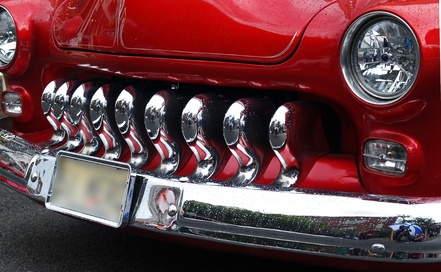
Much of energy consumed in the United States goes toward transportation, particularly the driving of automobiles, in the form of fuel. Most cars run on gasoline, a derivative of petroleum, most of which much be imported into the country from abroad, often at great expense. Fortunately, there are a number of ways of conserving the energy used in transportation.
The use of public transportation, such as buses, trains and subways, is one of the simplest ways of reducing transportation-related energy use. With mass transportation, the energy consumed per passenger is nearly always less than if the passenger were to travel the same distance in an automobile.
Carpooling, in which passengers share rides to work or school, is another excellent way of reducing fuel consumption. In many areas, carpools are allowed to use special lanes, allowing them to go quicker, with less starting and stopping, thereby improving their fuel efficiency.
One way in which fuel can be conserved is to drive less aggressively. Quick accelerations and sudden braking eat up a large amount of fuel. Stick to steady acceleration and gradual braking, and maximize the use of cruise control, which makes particularly efficient use of the engine.
The simple act of keeping tires inflated lessens the amount of work your engine has to do to move the car, thereby improving fuel efficiency.
Keeping your engine in proper working order will maximize performance, thereby saving gasoline. According to the Oregon Department of Transportation, changing the oil and air filters regularly lessens the work demanded of your engine. Conversely, dirty air filters, old spark plugs and low fluid levels can damage fuel economy.
If possible, consolidate trips to lessen the amount of driving. For example, instead of making separate trips for multiple errands, if they're close by, perform all of them at once, thereby reducing fuel consumption.
According to the InterAcademy Council, a research group, lighter vehicles are far more fuel efficient than heavier vehicles. If possible, drive a more compact car, and opt for one with a manual transmission.
Designs or accessories that lessen the aerodynamic structure of a car can lead to greater drag on the car, increasing fuel usage. Remove roof racks and other bulky objects, replacing them with internal storage units.
According to the Oregon Department of Transportation, walking and riding a bike are both more efficient uses of energy than driving a car. If traveling only a short distance, consider not using a motor vehicle.